“Are house spiders poisonous?” is one of those questions people often ask. The short answer to this question is it depends… It depends on what you classify as a house spider. And what is meant by ‘poisonous.’ If people are not sure what house spiders are — and what poisonous actually means — there could be problems. So, in this article, we address these points and clarify exactly what a house spider is and what poisonous means.
Facts relating to house spiders being poisonous
- “Poisonous” and “venomous” are two different things. You may make a sigh of relief knowing that house spiders are not poisonous. But this fact isn’t really a big deal. “Poisonous” simply means that an animal releases dangerous toxins when you eat it. You don’t eat spiders, so this fact has no effect on your life. The real question you want to ask is, “Are house spiders venomous?” This is because “venomous” means that an animal releases dangerous toxins when it bites or stings you. And yes, some spiders are indeed venomous. They can inject toxins into your body through their bites.
- It depends on what you mean by “house spiders.” “Are house spiders poisonous?” is a really tricky question because what do you mean by house spiders anyway? Some people use the words “house spiders” too loosely. They simply mean any kind of spider you can find in houses. But “house spiders” can also mean a very specific species of spider — the American house spider. If you are using the words “house spiders” too loosely — yes, some house spiders are indeed venomous. But if you are using them to refer to the American house spider — the answer is still yes. This spider species is indeed venomous. But its venom isn’t known to be dangerous to humans, although some may experience allergic reactions.
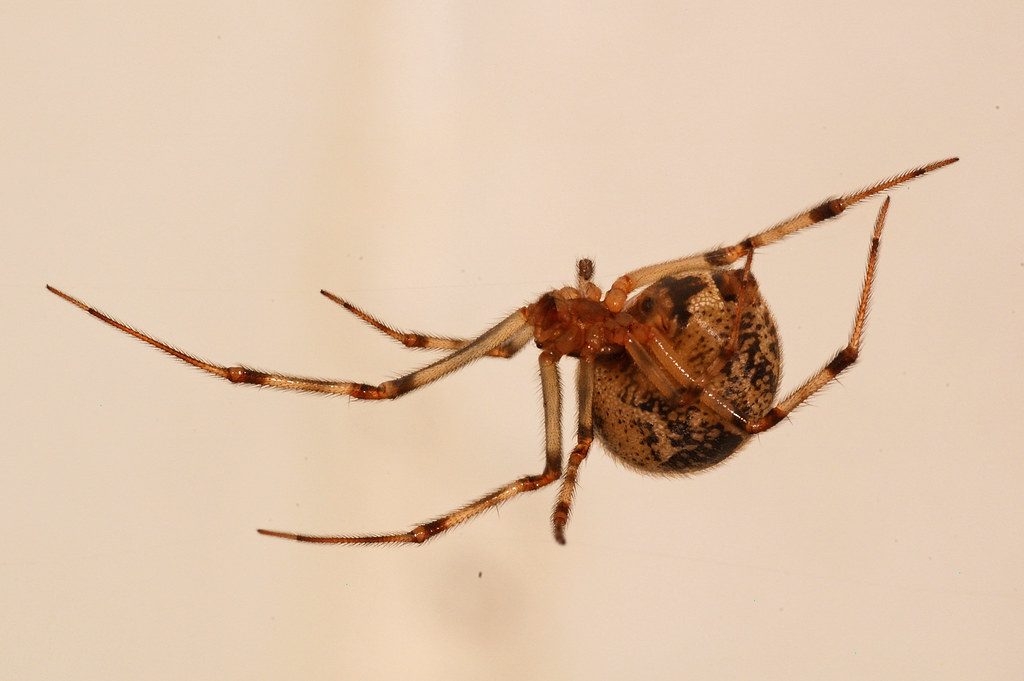
Venomous house spiders to look out for
There are thousands of species of spiders in the world. You will encounter some species more than others. And among these common house spiders, there are three you should look out for the most.
1. Black widow
As their name suggests, black widow spiders are black spiders. But what makes them distinctive is the red mark on the underside of their abdomen. These red marks are often in the shape of an hourglass.
Black widow spiders are some of the most dangerous spiders you can have in your house. This is because their bites and venom are very potent. They can lead to multiple symptoms, like pain, muscle stiffness, and nausea.
Black widow spider attacks are actually considered a medical emergency if you suffer from severe symptoms. That’s how serious they can be. If you think you have been bitten by a black widow spider and you experience more than just minor pain, seek medical attention immediately.
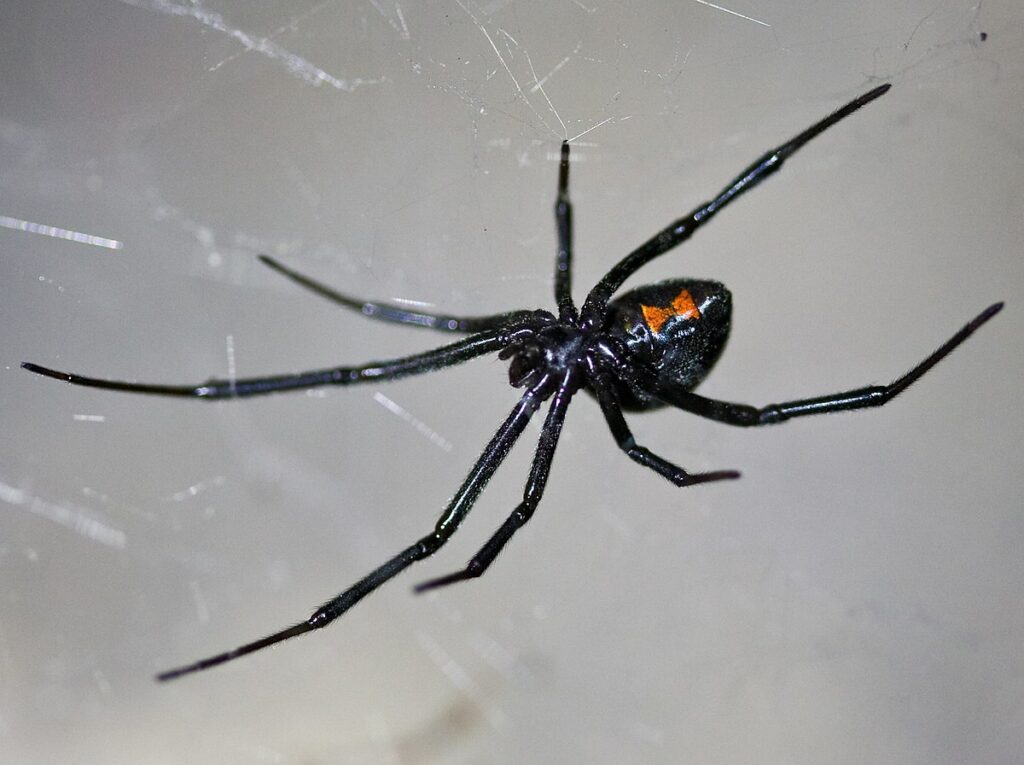
2. Brown recluse
Like black widow spiders, brown recluse spiders have a very suggestive name. They are brown spiders that have a reclusive nature. They like to hide in the parts of your house that are often dark and undisturbed, like your closet.
But don’t let their reclusive nature fool you. It’s actually this very nature that puts you at risk of brown recluse spider bites. A brown recluse spider may be secluding itself inside your pile of clothes, and when you disturb it when you pull a piece of clothing in your closet, it can attack.
The main problem with brown recluse spider bites is the cytotoxin in their venom. It attacks cells and tissues, which may lead to necrosis or the death of body tissue. The bites can also lead to blisters, open sores, and rashes.
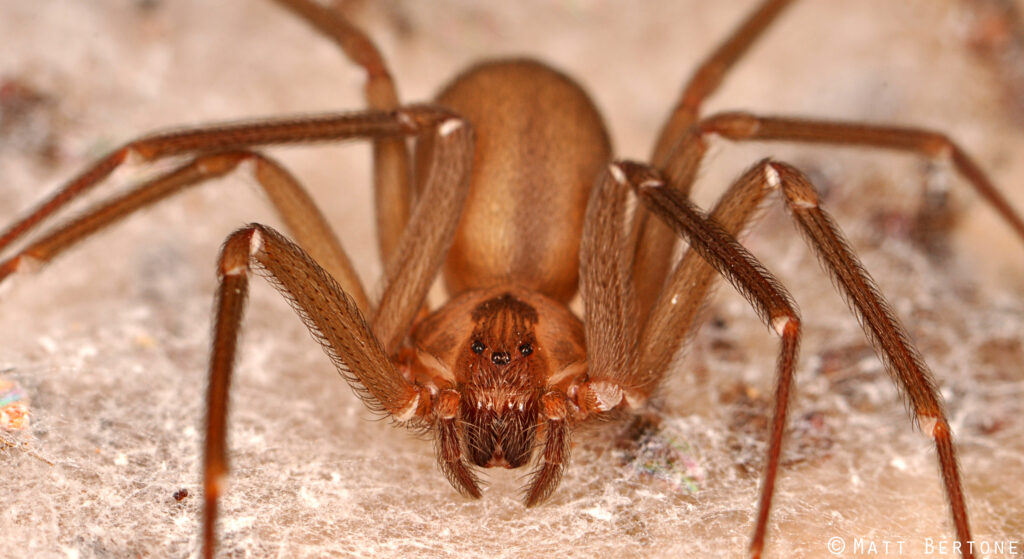
3. Hobo spider
Hobo spiders are brown just like brown recluse spiders. This is why hobo spiders are often confused with brown recluse spiders. They are also often blamed for brown recluse spider attacks, especially if the spider who has attacked has not been caught and there is no way to verify what kind of spider it really is.
But there is a characteristic that separates hobo spiders from brown recluse spiders — hobo spiders have hairier legs. Location is also a good way to separate the two, with hobo spiders thriving in Northwestern U.S. states like Washington and Oregon and brown recluse spiders thriving in Texas, Oklahoma, and other states to the east.
It’s important to distinguish between the two because brown recluse spiders are actually the truly dangerous ones. Hobo spiders are just often blamed for brown recluse spider attacks because they look the same. But in reality, hobo spiders are really not that dangerous.
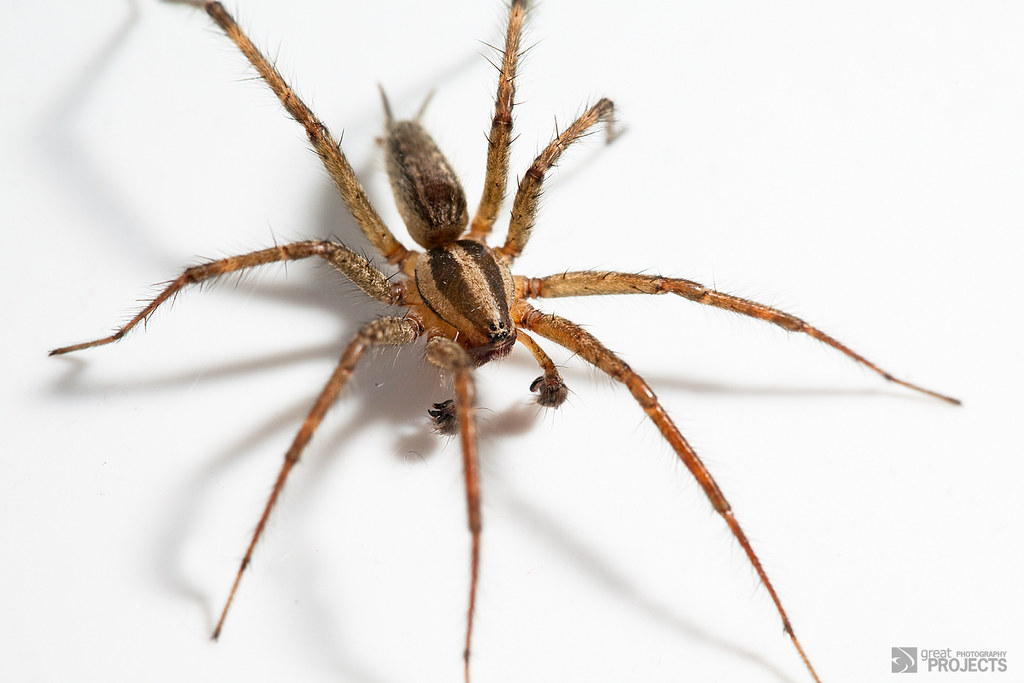
How to avoid spider infestations
- Get rid of their food sources. You should always clean up after eating, so you don’t have food crumbs and drink spills that can attract pests. No, spiders are not attracted to these food and water items. They are more attracted to the pests that are attracted to these resources. Spiders hunt common house pests, like flies. Don’t forget your garbage cans as well. They also have leftovers and residue that can attract pests that will fall prey to spiders.
- Close all potential passageways. You are more likely to suffer from spider infestations if your house is easily accessible from the outside. Doors and windows are common pest passageways, so keep them closed. Cracks and holes in your walls are also potential passageways, so seal them as soon as you can.
- Eliminate other pests. You should be worried if you feel like your house is being taken over by spiders. How are these spiders sustaining their population? One possible reason is that they have a constant supply of prey, meaning you have other pests in your house like ants, cockroaches, mosquitoes, and termites. If you have a pest infestation, call pest control professionals immediately. Some pests don’t just bite like spiders. Some even spread diseases.
House spiders are not poisonous
No, house spiders are not poisonous. But there are house spiders that are venomous. They can inject toxins into your body through their bites. Some of the most venomous house spiders are black widows and brown recluses. But don’t confuse hobo spiders with brown recluses even though they somewhat look the same.
If you have been bitten by a spider and you experience severe symptoms, seek medical attention immediately, especially if you don’t even know what kind of spider has attacked you.

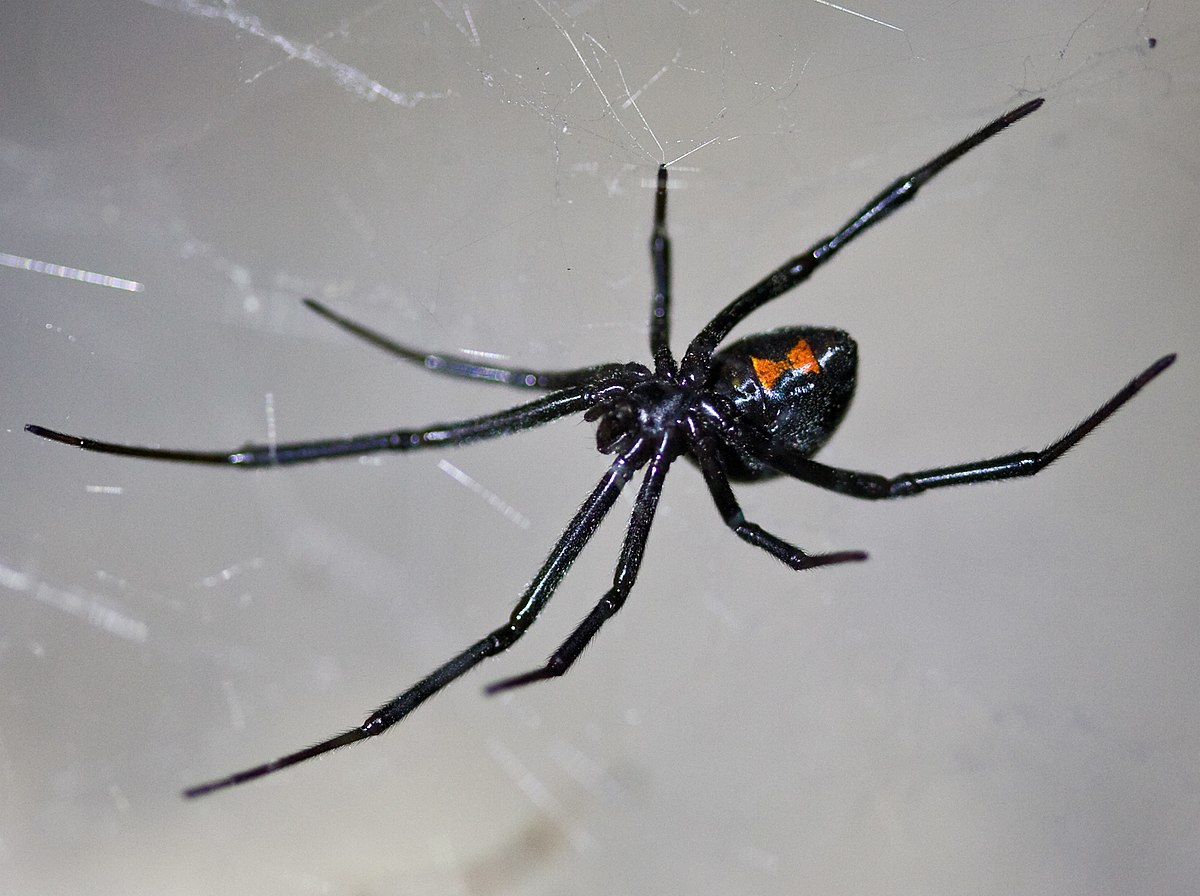
The University of California (San Diego) released a peer reviewed story this past February(2022), showing toxins from the hobo spider accumulating inside the testicles of it’s victim. Although the research is still early, it’s strongly being suggested that over time, toxic levels CAN be released through the urethra and may result in a serious…life altering medical emergency.
Hi Kevin,
Thanks for posting. That is very interesting, thanks for sharing that with us. We will keep an eye on that research.
Best wishes,
Deal With Pests